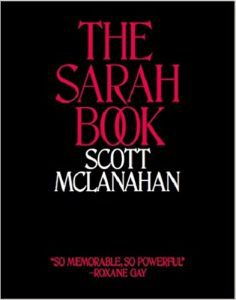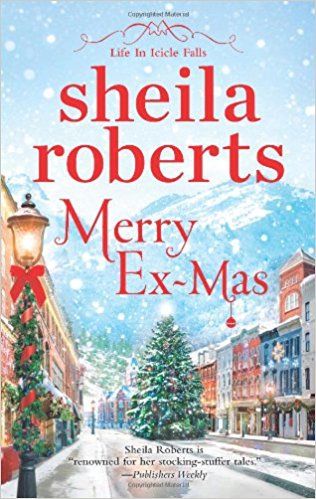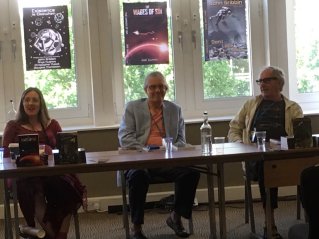July 03, 2017
Fiction Reviews
“Country roads, take me home
To the place I belong
West Virginia, mountain momma
Take me home, country roads”
-John Denver, “Take Me Home, Country Roads”
If I were partial to the Denver School of Criticism, I might spend hours coming up with pithy sobriquets for Scott McClanahan. I’d call him the Chaucer of Coal Country, Mountain Bukowski, or some other such shite. I’d focus on the stereotyped version of West Virginia many of us carry in our heads, turn McClanahan’s story into a combo of The Outsiders sacking the Sam’s Club snack aisle and life in the U.S.S.R. circa 1983, a place that really wasn’t that bad compared to the coal-dusted, oxy-encrusted, Trumpist mayhem of today’s West Virginia.
the Denver School of Criticism, I might spend hours coming up with pithy sobriquets for Scott McClanahan. I’d call him the Chaucer of Coal Country, Mountain Bukowski, or some other such shite. I’d focus on the stereotyped version of West Virginia many of us carry in our heads, turn McClanahan’s story into a combo of The Outsiders sacking the Sam’s Club snack aisle and life in the U.S.S.R. circa 1983, a place that really wasn’t that bad compared to the coal-dusted, oxy-encrusted, Trumpist mayhem of today’s West Virginia.
But why go to all that trouble when it’s already been done ad nauseam to McClanahan and just about every other writer remotely connected with Appalachia? In their general, genial devotion to the Denver School, many critics have done a double-edged disservice to Appalachia’s writers, made it easier for readers to pretend to take them seriously, harder to do so. So, in the interest of fairness, let’s leave John Denver and his country roads deep in the rearview. (See the bowl cut and wire-rimmed glasses, smell the stewing possum as we drive away?) Let’s forget The Sarah Book has anything to do with West Virginia, or Appalachia for that matter. It’s not hard. Take McClanahan’s stunning opening paragraph (which doubles as his stunning opening chapter):
“There is only one thing I know about life. If you live long enough you start losing things. Things get stolen from you. First you lose your youth, and then your parents, and then you lose your friends, and finally you end up losing yourself.”
Something between a novel and McClanahan’s memoir of his first marriage, The Sarah Book is so universal in themes, so relatable in voice and eloquent in its realizations, that you never doubt its authority. Which is precisely the way to deliver material that straddles the line between fiction and nonfiction. Rather than constantly pulling the reader aside, winking and nodding and fretfully suggesting, “maybe this is true, maybe it isn’t, I’m not sure,” McClanahan lets the story stand on its own merits. Its merits as a story, that is; not as empirical truth. Which frees him from the constant back-and-forth writers dealing with similarly slippery material can fall prey to.
From the beginning and a morning drunk-driving escapade, McClanahan’s struggles with substance abuse are at the center of The Sarah Book. Yet he never relies on his drinking and drug use as excuses for sloppy writing—for the confused thoughts and wild narrative leaps that doom so much “drunk fiction.” Instead, McClanahan uses his altered states and their attendant problems to build suspense, as in that first scene when the reader realizes all too late McClanahan’s small children are in the car with him. Or, a few pages later when he’s pulled over by a state trooper. Convinced he’s finally been caught, McClanahan brilliantly convinces his reader of the same, only to escape with a warning. As he drives off, giddy with adrenaline, McClanahan revels in his self-destructiveness, the addict’s fundamental narcissism and the evil it can lead to, “The children were still crying, but I didn’t care now. I was free and I wasn’t caught and I was driving our death car so fast and unafraid. I was destroying our lives now and it felt so fucking wonderful.”
There’s a strange, foundational honesty to The Sarah Book; not simply truthfulness, but a willingness by McClanahan to be caught in his own, obvious lies, the delusions and flights of mania the addict uses to justify his behavior. But beyond even its fundamental honesty, I come back to the intellectual and philosophical depth of McClanahan’s work. Though the book’s beginning is truly memorable, it’s just one example of the depth of human experience McClanahan’s able to convey in his writing. Another:
“Sarah thought of all the true tattoos we never get. She wondered why people didn’t tattoo themselves with the truth like I am not a butterfly. I am not a unicorn. I am not a snake. I’m afraid. I’m dead inside.”
And another, as he eulogizes his dead dog, Mr. King:
“I told him that our suffering is a hug from god and one day we would understand, but then I stopped and told him I was sorry because I didn’t believe in God.”
I could keep quoting McClanahan for pages and pages, but that would give you an excuse not to read the book. Which I can’t bring myself to do. Scott McClanahan’s The Sarah Book is just so damn good—so funny and honest and wise, so shocking, soulful and, at times, depraved—you must experience it for yourself. Once you have, you’ll realize this is one West Virginia writer who has gone beyond regionalism and the need for literary head pats. Scott McClanahan has charted his own path, down out of the mountains, away from the clichés so many of us take for fact.
Advertisements Share this:




